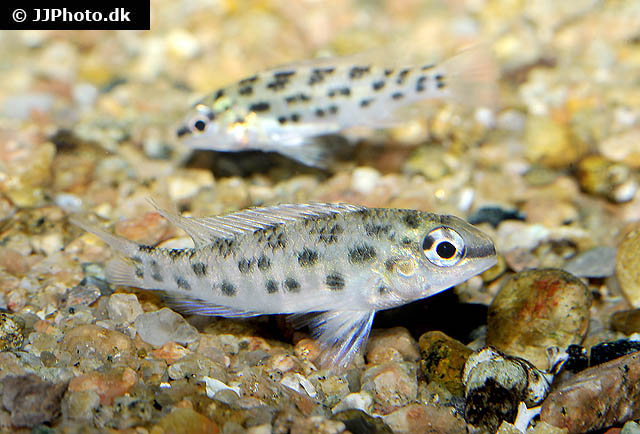| Cichlidae (Cichlids), subfamily: Geophaginae |
| 7.09 cm SL (male/unsexed); 4.5 cm SL (female) |
|
benthopelagic; freshwater |
| South America: Rio Negro, Amazon drainage in Brazil. |
|
Dorsal spines (total): 15-16; Dorsal soft rays (total): 6-7; Anal spines: 3-3; Anal soft rays: 6-7. Can be distinguished readily by having three rows of round to vertical-ovoid, alternating dark grey to blackish, double or triple spots on the sides of the body; adult males with a black spot on the dorsum and basal part of the dorsal fin at the position of hard rays 7 to 8, and a pointed rhombic caudal fin. Exhibits pronounced sexual size and color dimorphism (Ref. 85095). |
| Inhabits all types of water. Juveniles occur exclusively in very soft and acid, clear and black water while sub-adults occur in whitewater brooks (Ref. 85095). |
|
Data deficient (DD); Date assessed: 07 November 2018 Ref. (130435)
|
| harmless |
Source and more info: www.fishbase.org. For personal, classroom, and other internal use only. Not for publication.

